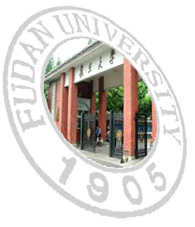A new course on homosexuality that is being offered at Shanghai's prestigious Fudan is believed to be the first devoted to the topic of homosexuality by a mainland university, Hong Kong's South China Morning Post reported on Monday.

Chairman of the Foundation, Chung To, told Fridae that they had approached Fudan University early this year with the idea of offering the course.
"I think with the absence of a strong Judeo-Christian heritage, discrimination against Tongzhi in contemporary Chinese societies is mainly caused by ignorance and misunderstanding," To said.
"The course does not aim to promote homosexuality, but an understanding of homosexuality."
He added that the course was co-designed by Chi Heng and Fudan University and counts towards a student's degree "and will appear on the students' transcripts as a course on homosexuality."
He said the course would initially be a two-year collaboration with Fudan, opening next year to undergraduate students in the fall semester.
"It is the first time we know of for a university in China to offer such an accredited course, not just a two-hour lecture on the subject," To said.
The syllabus for the course ranges from public policy to gay literature and includes a field trip to gay bars in Shanghai, the newspaper said.
In an accompanying editorial, the Post welcomed the course at Fudan University as "an encouraging sign."
Despite the low profile of the course, which is offered only to graduate students from the medical and public health schools, news has spread by word-of-mouth and on Internet bulletin boards, drawing in students from other faculties, the report said. Some lectures have drawn more than 100 people.
Homosexuality has been dealt with before by Chinese universities, but only as a topic in courses on sociology, psychology and medicine.
A recent two-hour lecture by Qingdao University professor Qin Shide began with the academic declaring his homosexuality before launching into discussion of the history and science of the subject.
The elderly professor spoke of becoming aware of his homosexuality as a child, entering a forced marriage in his 30s and his present life with his partner.
"The number of homosexuals in China is large, but people who dare to speak out are few. This is slowly changing," Qin was quoted as saying.
Some estimates put the gay and lesbian population at seven per cent of China's 1.3 billion people. Homosexuality was until 2001 classified as a mental illness, and government suppression continues, though there are no specific laws against homosexuality.
The newspaper observed in an accompanying editorial that in countries "where taboos about homosexuality have been broken down over the years, the seeds of change have often been sown in the universities."
The Post said in its editorial: "Those who advocate equal treatment for gays and lesbians should thus be encouraged by the news� that one of China's leading universities has launched a graduate course on the topic.
"Granted, the mainland has some way to go before it grants the kind of recognition found in places such as Canada, where gay and lesbian marriages are legally sanctioned," the editorial said.
It said the course at Fudan University was "an encouraging sign" because "opening the minds of the country's future academics and policymakers is part of the groundwork needed for more progress to take place."
"It comes at a time when the Anglican Church is debating the ordination of gay priests and there are controversies around the world over legalisation of homosexual marriages," the editorial said.
"This should provide fertile ground for debates over principles such as tolerance, compassion and non-discrimination."
Gays and lesbians in Hong Kong, which returned to China's sovereignty in 1997, have been wrestling with the government bureaucracy to secure recognition of same-sex marriages and the enactment of laws protecting them from discrimination. Progress has been negligible, despite a growing body of opinion in support of equal rights.
Male homosexuality was decriminalised under Hong Kong's largely British-based laws in 1991, but fear of persecution means few of its gay and lesbian population are open about their sexuality.
Taiwan is expected to unveil next month human rights legislation that will, among other things, give full recognition to same-sex partnerships. The measures, first mooted in 2000, have widespread popular support in probably the most traditional of Chinese Confucian societies.
Canada recently moved to recognise the equality of same-sex marriages with those of heterosexuals, triggering heated debate in the United States and leading to attempts to have marriage defined in the US Constitution as existing solely between one man and one woman.
The British Government is expected later this month to announce legislation recognising gay and lesbian couples in civil unions, according them virtually all the rights and obligations offered by marriage.
Australia, however, has firmly refused to acknowledge the validity of same-sex partnerships, though most of its State governments have changed laws to remove gender identity from benefits and protections given to couples.











 Printable Version
Printable Version













Reader's Comments
Be the first to leave a comment on this page!
Please log in to use this feature.